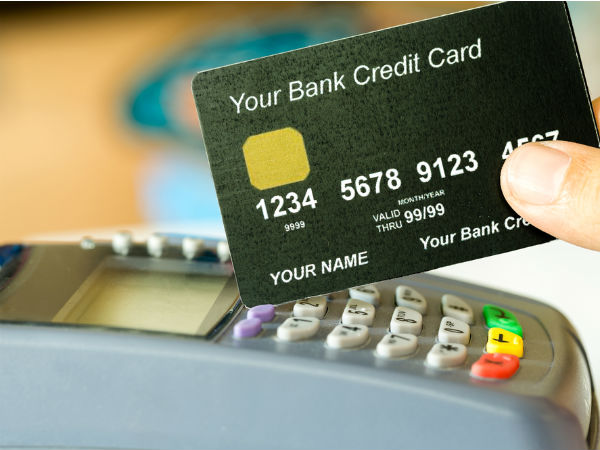Know All About Credit Card Billing Cycle
Credit Card Billing Cycle is also known as the statement cycle. It refers to the period for which the credit card bill is generated.
The use of the credit card has increased drastically in the last few years. Backed by a slew of offers, safety and convenience has made the people across globe to opt for a credit card. Reports reveal that as of 2019, the number of credit card users in India, has reached around 52 million and the numbers are inching up steadily year on year.
So if are using the plastic money (credit card), then you should be aware of several terms associated with it. One such term is the credit card billing cycle. Having a better understanding of terms associated with credit cards helps individuals to plan their finance-related matters in a better way.

What is a Billing Cycle?
A billing cycle refers to the interval of time from the end of one invoice or billing statement date to the next one. This billing cycle is associated with goods or services which a firm provides to its users regularly. Usually, the billing cycle is prepared every month but the duration can change based on the product or services rendered.

What is Credit Card Billing Cycle?
The Credit Card Billing Cycle is also known as the statement cycle. It refers to the period for which the credit card bill is generated. All the transactions which are conducted during the tenure of the billing cycle will be reflected in the credit card statement of the month. During the tenure of a billing cycle, a service fee will be charged which has to be borne by the cardholder.
Account fees will be represented in the billing statement and the same will be forwarded to you after the completion of the billing cycle. A billing statement will show the card holder's prior balance, list of payments made during the billing cycle, minimum fees, outstanding balance interest, due date and new balance for the statement period.
All the charges/ fees will be added to the balance from the previous billing cycle and all the credits and payments will be deducted to arrive at the current balance.
The cardholder will receive a monthly statement for any of the remaining balance until they repay the full amount even if they close their account. Some of the billing cycles will begin and end on the account opening date. The tenure of the billing cycle can range anywhere between 28 days to 32 days and it can either be for shorter or longer period and will be mainly based on your credit card and the bank.
For Example: If your credit card statement is generated on 5th of every month, then your credit card billing cycle will begin from the 6th of the previous month and will continue till 5th of the current month. Any kind of transactions done on your credit card until this period will appear in your monthly credit card statement. It will include all the cash withdrawals, credit card payments, existing EMIs (if any) on your credit card.

How Does a Credit Card Billing Cycle Work?
The billing cycle for a credit card will start from the day you activate your credit card. Usually, the balance on your respective credit card will be zero although it may include an upfront fee which will be charged on your credit card by the provider. If you are planning to transfer your balance to a new credit card, then it will include balance transfer charges.
Beginning from the day of activation of credit card, all the transactions on your credit card will be included in your credit card bill. If in case, you make cash withdrawals using your credit card, charges associated with it gets added. If you have EMIs or any other finance charges on your credit card then those will get added to it.
If you receive any amount in the form of paid back on your credit card like a reversal of any payments made, fuel surcharge waiver and so on, all those payments will get deducted and an end bill will get generated.
Any kind of financial transactions made post the billing cycle will get reflected in the next statement.

Concept of Billing Cycle
The statement date is usually set at least 21 days ahead of the payment date or the date on which you are required to pay your credit card bill. You will not be asked to pay for the entire balance amount but ensure that you pay at least minimum credit card charges as per the requirements. If you miss paying the minimum fee, then you will have to cough up late fee and the annual percentage rate (APR) might also get affected.

Payment Due Date
As the name suggests, the payment due date refers to the date within which the cardholder has to pay the credit card outstanding amount monthly. Usually, the payment due date is set between 21 - 25 days since the previous bill was generated. You can pay your credit card outstanding bill before the payment due date if in case you miss it, then late payment fee and other related charges will be levied.
For Example: If your payment due date falls on 20th of every month and if you pay your entire outstanding payment which is due on your respective credit card within the said date, the cardholder will not have to incur any penalty or interest charges.

Minimum Payment
The minimum payment on a particular credit card refers to the minimum amount which a cardholder has to pay on or before the credit card payment date to maintain the credit card account. Usually, this will constitute only a small amount of the total outstanding due amount. On making the minimum payments, cardholders can avoid the late payment penalties which will be levied on the credit card.
It is better to pay the entire amount rather than paying the minimum payments, as the banks will levy interest on the remaining amount and the interest rate will be as high as 48% (annually) and eventually this may take many months for the credit cardholder to repay the credit card bill of a single card.
GoodReturns.in
About the Author
Archana is a Content Writer at GoodReturns. She has been writing articles related to investment planning and personal finance for more than two years.
































